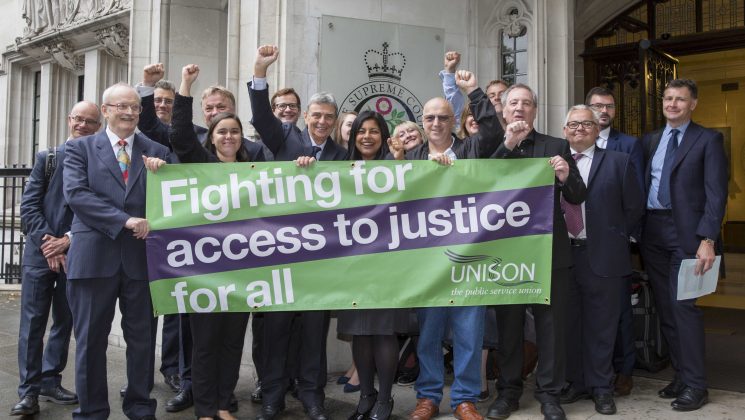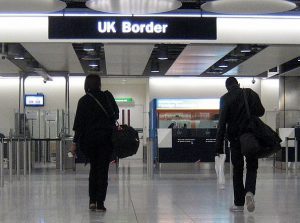Judges outlaw paying fees for employment cases
Requiring women to pay a fee for taking a discrimination case to an employment tribunal breaches the Equality Act, the Supreme Court has ruled.
This was one reason the Supreme Court upheld an appeal by the union, Unison, against government policy that charged workers fees to lodge a claim at an employment tribunal.
The result of the case is that government has immediately dropped its charges but will further consider the issue at a later date.
Supreme Court judges in July 2017 heard that women were indirectly discriminated against because they were more likely than others to take a particular type of case that incurred higher fees.
The Court said:
“The Fees Order is indirectly discriminatory under the Equality Act 2010 because the higher fees for type B claims put women at a particular disadvantage because a higher proportion of women bring type B than bring type A claims.”
Pricing workers out of justice
The Court also ruled the government’s fees breached UK and EU law because they priced workers out of obtaining justice.
As the Supreme Court said:
“Fees must be affordable not in a theoretical sense, but in the sense that they can reasonably be afforded. Where households on low to middle incomes can only afford fees by forgoing an acceptable standard of living, the fees cannot be regarded as affordable.”
The Supreme Court also stated that all fees paid from 2013 will have to be refunded by the Lord Chancellor’s Department and the government has agreed to do this.
From 2013, the government introduced fees from £400 to £1,200 for people lodging legal claims in order to have their cases heard at an employment tribunal. There were other fees of up to £600 that might have to be paid depending on the case. To appeal an Employment Tribunal decision cost £1,600.
The Court heard that the number of claims fell by just under 70% because of the fees. Judges were also told that 86,130 cases were brought to a tribunal in 2015/16, and £11.6m was paid in tribunal fees in 2016/17.
The Supreme Court ruling reverses the outcome of the High Court case in August 2015 that Unison lost. The High Court concluded that the early conciliation process and fees could be responsible for the decrease in the number of cases.
Related News Stories
An advanced mental health practitioner was recently awarded over £60,000 after he was sacked without a fair process. An employment…
The CBI has been rocked by accusations of rape and sexual misconduct. With its reputation in tatters, members leaving by…
Swearing at work was ruled acceptable by one employment tribunal judge, while another gave out £71,000 in compensation when a…
Government agency bosses used a flawed procedure when firing a top foreign envoy for a sexual harassment accusation. The British…
Employers risk making poor and costly decisions in response to employees asking to work from their homes. Two cases have…
A judge slapped down an employer who failed to follow a fair procedure when sacking a nurse for being racist.…
A well-known clothes store's flawed promotion and assessment process landed them with a £96,208 judgement at an employment tribunal. Bristol…
An employer lost an unfair dismissal case after summarily sacking an employee rather than go through a fair procedure. London…
The government has increased the scope for employers to sack employees without the threat of court cases. The new law…
A high street giant’s attempt to cut their staff bill was slapped down recently due to employment law. The High…
A landmark court ruling has boosted employment lawyers’ chances of protecting ‘sex change’ workers from harassment and unfair dismissal. Birmingham…
Government have changed their advice on telling employees to return to the workplace due to a spike in virus infections.…
The looming end to the government’s job subsidies in November will lead to some cynical bosses using redundancy to victimise…
A rail company did not need extensive medical evidence to sack an employee for being too sick to work. Employment…
An employment tribunal in November 2016 decided that a company fairly dismissed a worker when her refusal to do overtime…
Foreign workers have a right to appeal if they face dismissal over doubts about their UK residency status, appeal judges…
New legislation compels people in a workplace dispute to talk before going into legal battle in a court. Whether they…

















